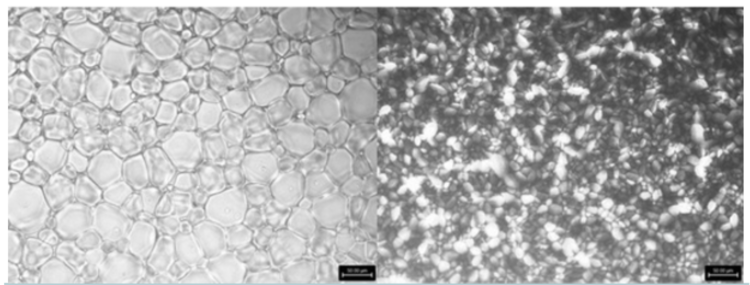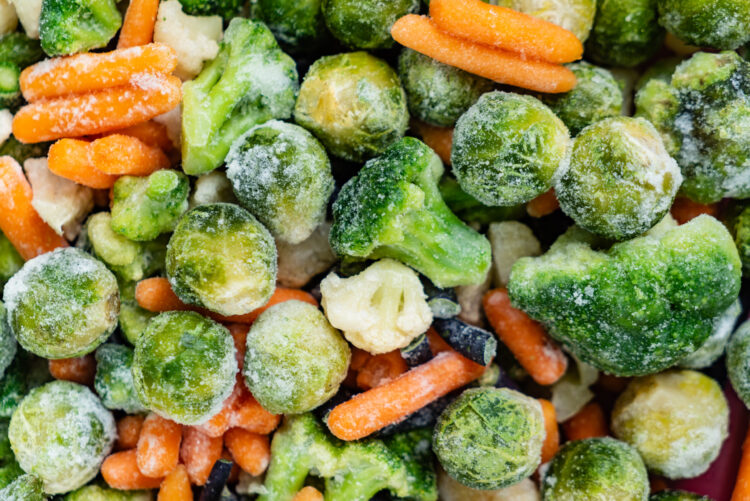Plant-Based Food Colorant for Ice Recrystallization Inhibition
The Problem
Biomedical materials and food products must often be frozen for long-term storage and preservation. However, ice recrystallization causes deterioration of frozen foods, laboratory, and medical products. This causes excess waste of these materials, resulting in economic loss. Consumers purchasing frozen foods at lower costs may have to throw away those items due to "freezer burn" (aka ice recrystallization). Biomedical products requiring long-term frozen storage may also be compromised due to ice recrystallization, resulting in abnormal results.
The Solution
Researchers at the University of Tennessee have shown, for the first time, strong anti-freezing properties in a readily available, plant-based, food-safe commercial colorant. Preliminary laboratory results using the standard anti-freezing splat assay have shown up to 70% reduction in ice crystal size compared to polyethylene glycol (PEG). The mechanism of the ice recrystallization inhibition is currently being studied for publication in a full paper. This colorant IRI additive can be used in food production as an alternative to other antifreeze additives, in addition to proper sealing techniques, or in lab settings as a replacement for antifreeze products that are toxic to cells.

Benefits
| Benefit |
|---|
| Existing product in marketplace means lower cost of implementation |
| Already proven to be safe for consumption and non-toxic |
| Plant-based material makes this solution suitable for vegan and vegetarian food varieties |
More Information
- Tyler Newton
- Assistant Technology Manager
- 865-974-1882 | cnewto12@tennessee.edu
- UTRF Reference ID: 24048
- Patent Status:

Innovators
Dr. Toni Wang

Professor, Department of Food Science, College of Arts and Sciences, UT Knoxville
Dr. Wang received her PhD from Iowa State University in Food and Lipid Chemistry. Dr. Wang's research (with a total of ~$13 million funding) is focused on identifying novel and practical solutions for problems and challenges associated with processing, utilization, and functionalities of agricultural products intended for food, feed, biomaterials, and energy uses. She aims to use fundamental chemistry of lipids and proteins in new ways to improve food quality, functionality, safety, and health, and to reduce waste and environmental impact.
Read more about Dr. Toni Wang